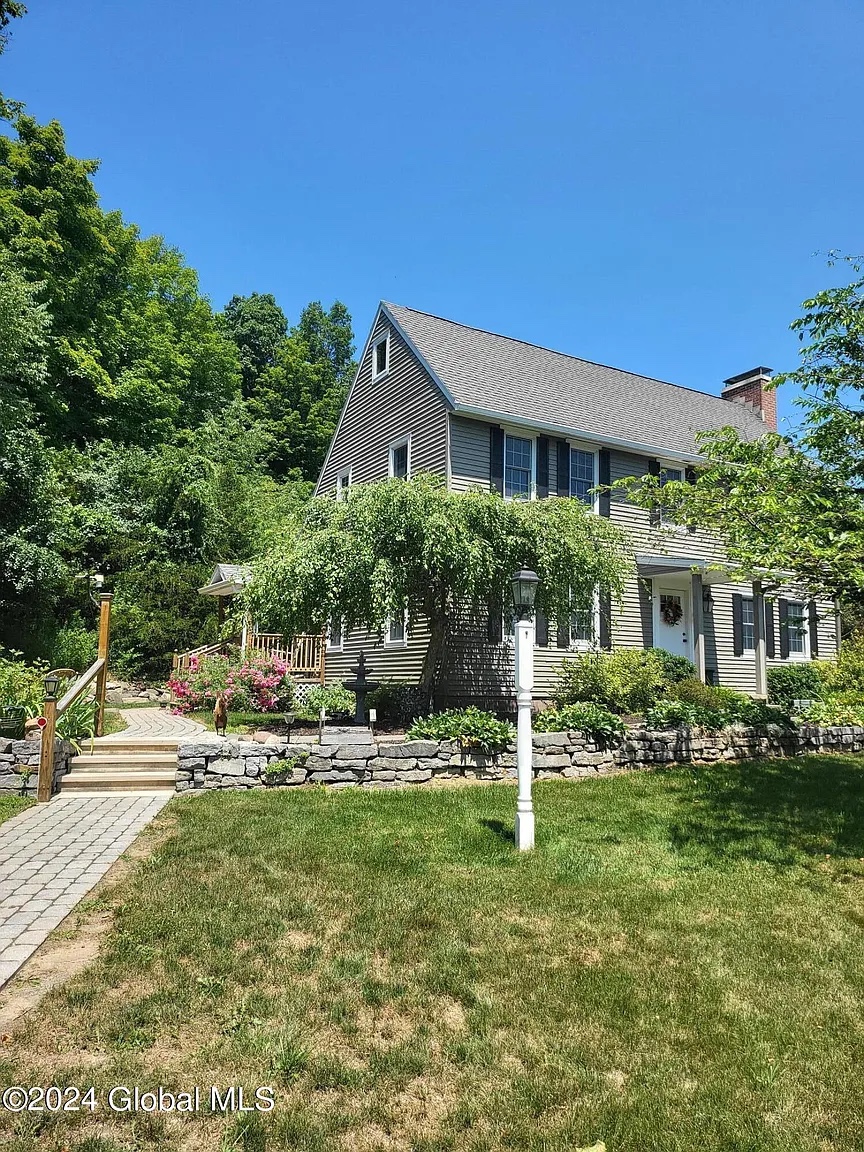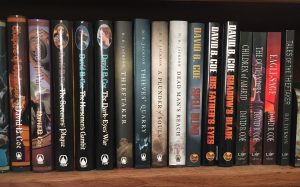Yes, I’ve been quiet for a while. Things are okay. Really. More than okay, actually. But Nancy and I have been hella busy. With travel, with family stuff. But most of all with the big news that is the subject of this post.
 This [see the photo above] will soon be our new home. It is in New York’s Hudson Valley, near Albany, on six-plus acres of beautiful land, complete with gardens, fruit trees, and a small pond. More important, it is maybe twenty minutes from my brother and sister-in-law, is equally close to one of my dearest friends and his partner, and is within easy drives of many other friends and family.
This [see the photo above] will soon be our new home. It is in New York’s Hudson Valley, near Albany, on six-plus acres of beautiful land, complete with gardens, fruit trees, and a small pond. More important, it is maybe twenty minutes from my brother and sister-in-law, is equally close to one of my dearest friends and his partner, and is within easy drives of many other friends and family.
We have lived in our current house for nearly twenty-six years, and in our small college town here in on the Cumberland Plateau for more than thirty-two. We raised our girls here, built a home, nurtured successful careers here, made friendships that will last for the rest of our days. Even as we have chafed at the backward, hateful politics of Tennessee, we have reveled in the state’s natural beauty and the friendliness of so many of its people. It is strange and a bit sad to contemplate our imminent departure from this home which we love. (Yeah, we still have to sell the place, but we’re hoping that won’t be too difficult.)
But the rightward tilt of the state, the Tennessee GOP’s fetishistic obsession with gun culture, and the legislature’s unrelenting assault on the rights of women, people of color, and members of the LGBTQ+ community have worsened significantly over the past few years. And, of course, since losing our older daughter, living in the house in which she grew up has become difficult to say the least. It is time for us to leave.
Nancy is deeply grateful to Sewanee: The University of the South for all the opportunities offered to her over the course of her academic career here. She has served in a variety of roles — assistant professor, associate professor, full professor, department chair, associate dean, associate provost, provost, and finally interim Vice-Chancellor of the University. She is the first biology professor to hold the William Henderson Chair in Biology and the first woman in the history of the university to serve as VC. She has loved working for the school.
And I have been so pleased to be part of the Southeast’s speculative fiction community for the past twenty-seven years. I have established wonderful relationships and have been welcomed at literally hundreds of conventions across the region, including many for which I have been designated as a special guest or guest of honor. In 2022, I received the Phoenix Award for Lifetime Achievement from the Southern Fandom Confederation. As I said, I have built a career here, and I will forever be grateful to the fans and colleagues who have become valued friends.
What’s next? What will life be like for us in New York? Well, it’ll be colder. There’ll be more snow. Nancy will be retired, but has plenty of interests and projects to keep herself busy and very, very happy. I intend to keep writing and editing, although I imagine my output will be somewhat lower than it has been in recent years. Then again, who knows. I have no shortage of projects I look forward to taking on. And given how much travel we want to fit in, I’ll need to make some money . . .
We will have more time with family, which will be wonderful. My college friend and I love playing music together, so I am hopeful that music, and even the occasional performance, will become a larger part of my life.
And we will continue to heal, to rely upon each other, and upon Erin, for love, support, hope, and laughter. It won’t be perfect, of course. Nothing ever is. But it is our next adventure, and we’re looking forward to it. I promise that we’ll keep you informed. In a social media sense, I’m not going anywhere.
Enjoy the rest of your week.









 I did just that. I started with some short stories that have never since seen the light of day, but which helped me to shape the contours of my world and its history. Then I began work on the novel, and by September had completed the first five chapters of what would eventually be Children of Amarid, my first published novel. I gave the manuscript to a friend of the family who had been a publisher, and he agreed to act as my agent, operating under standard agenting fees. He sent those five chapters and an outline of the rest of the book to various fantasy publishers.
I did just that. I started with some short stories that have never since seen the light of day, but which helped me to shape the contours of my world and its history. Then I began work on the novel, and by September had completed the first five chapters of what would eventually be Children of Amarid, my first published novel. I gave the manuscript to a friend of the family who had been a publisher, and he agreed to act as my agent, operating under standard agenting fees. He sent those five chapters and an outline of the rest of the book to various fantasy publishers. So many professional issues on my mind today — I’m finding it hard to organize my thoughts into something coherent.
So many professional issues on my mind today — I’m finding it hard to organize my thoughts into something coherent.